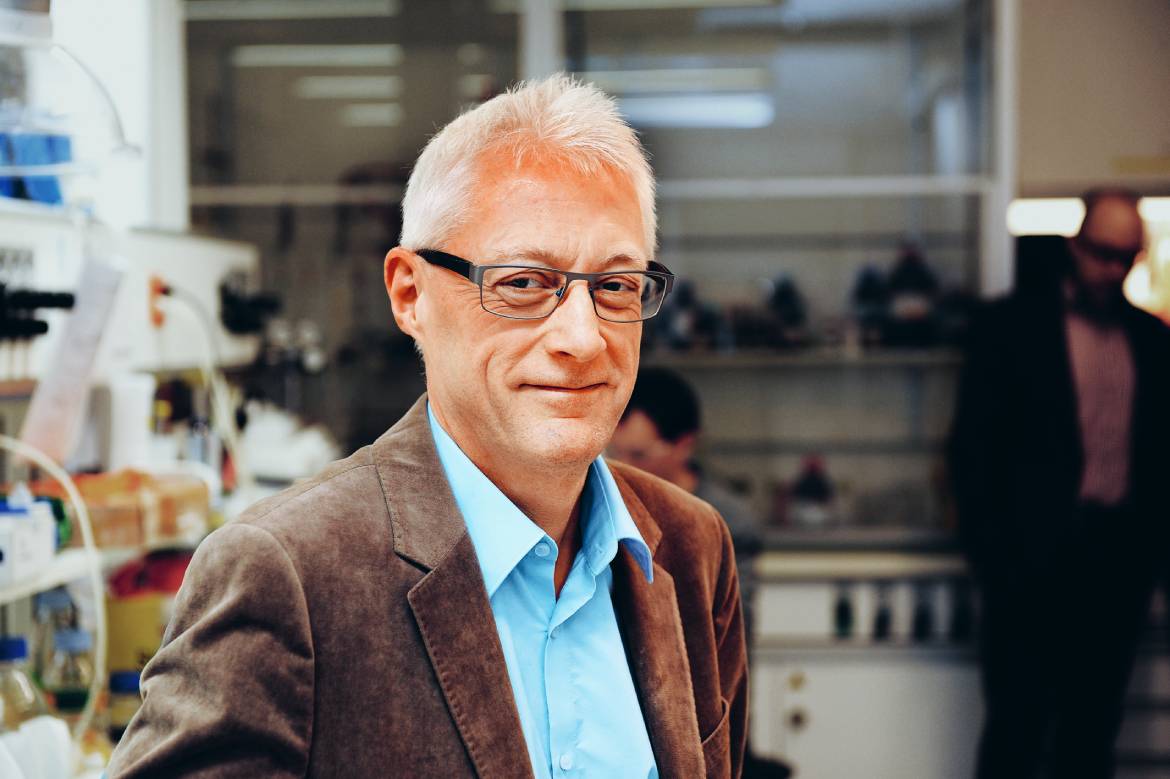STANDPOINT
Edwin Constable: “Science has come under unprecedented public scrutiny”
The President of the Committee for Research Integrity explains why Swiss research will get a new ethics codex this year.

Artificial intelligence is making progress, and researchers are producing a huge volume of data. These are two of the reasons why it’s important to introduce an up-to-date codex on research integrity, says Edwin Constable, a professor of chemistry at the University of Basel. | Photo: zVg
For two years, Edwin Constable has presided over a group of experts at the Swiss Academies with the task of revising the codex on research integrity. The publication of this document is planned for summer 2021, in collaboration with the Swiss National Science Foundation, Swissuniversities and Innosuisse.
Edwin Constable, how does a professor of chemistry become interested in research integrity?
A good question. This was a continuous, osmotic process. In my time as the vice-rector of the University of Basel, my responsibilities included doctoral training, where integrity was a central issue and a number of scientific misconduct cases landed on my desk. I find it an interesting and rewarding activity.
Rewarding?
Of course it is not gratifying when you are involved in an actual case. But if we get our new codex right, we can avoid those situations in the future.
What changed that meant the old codex on research integrity from 2008 had to be revamped?
Everything! Scientific activities have come under unprecedented public scrutiny in the past 15 years. The general public demands value for money. In addition, the communication of scientific results has changed. Back then, social media were in their infancy. We have since seen the emergence of fake news and the uninformed questioning of scientific results. It is crucial that published scientific results are robust and defendable. And today the management of academic institutions often learns of misconduct allegations from platforms like PubPeer. With technological advances in artificial intelligence and the volume of data produced, it has become increasingly difficult to review all the primary data relating to a publication.
What effect should it have in practice?
My real hope is that the research community will embrace it. Not as a set of rules that will restrict individual researchers, but rather as something to consult when they are in doubt about best practice or what is acceptable. Institutions can also use it as a checklist for their own regulations.
Why does the European Code of Conduct for Research Integrity need a Swiss version?
The European code is an excellent document, but the Swiss codex is more detailed and it considers national aspects. In Switzerland, higher education institutions are more independent. Investigations of misconduct and sanctions lie in their remit. The legal framework involving the confederation, the cantons and the universities defines what an institution can do. For example, the protection of the individual could limit transparency in a way that differs from public expectation. I have learnt a lot about Swiss law in the last two years!




